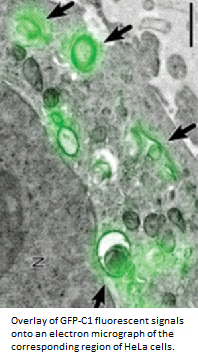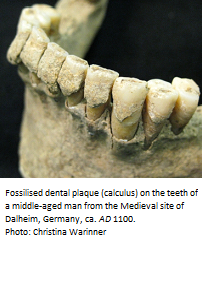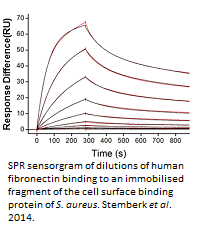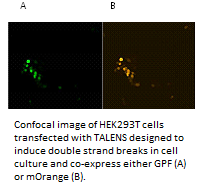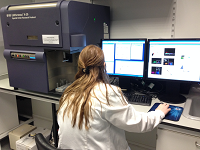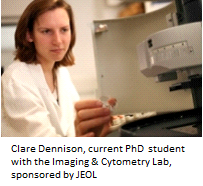Bioscience Technology Facility Update Summer 2014
The Bioscience Technology Facility provides you and your organisation with access to expertise, equipment and training in genomics, bioinformatics, proteomics, protein production, molecular interactions, imaging, and flow cytometry.
Below are some recent highlights:
The Imaging & Cytometry Lab has been involved in work associated with the preservation of fluorescence in resin-embedded section for Electron Microscopy. This enables truly correlative and integrated light and electron microscopy.
This work used the high sensitivity spectral Zeiss confocal microscopes here at York. The image opposite shows the localisation of GFP-C1 to endoplasmic reticulum and to membrane stacks (black arrows, scale bar 1 μm) and is work undertaken in collaboration with Cancer Research UK as part of the recent MRC/BBSRC/EPSRC funding under the Next Generation Optical Imaging Initiative. Peddie et al. 2014.
Our long standing collaboration with Matthew Collins of BioArchaeology in the use of mass spectrometry to identify and determine the species of origin through protein sequence has led to success in yet another area. The Proteomics Lab helped in the identification of proteins trapped in the dental calculus (plaque) from the teeth of skeletons around 1,000 years old, recently published in Nature Genetics and press release.
The approach we have developed has many potential applications, including the identification of the species origin of proteins in our food, of particular interest given the recent horse-burger scandal.
Our Molecular Interactions Lab has been involved in applying a range of biophysical techniques including Surface Plasmon Resonance and Isothermal Titration Calorimetry to study the mechanisms of the binding of Staphylococcus aureus to host proteins (Stemberk et al. 2014 and press release). S. aureus is the causative agent in infective endocarditis and other infections and the work has shown how bacteria exploit human proteins involved in clot formation and wound healing during the process of infection.
Targeted disruption of gene expression in eukaryotic cells provides major benefits for both understanding biological function as well as achieving reproducible expression of products from target genes. The Protein Production Lab has now established procedures in-house for the rapid production of the TALENs, one of the new techniques that have recently become available for targeted genome editing. The method is being successfully applied in several projects including developmental regulation and skeletal systems.
The Imaging & Cytometry Lab has recently taken delivery of the newly launched Becton Dickinson Fortessa X-20 flow cytometer. With four sequential lasers and analysis of up to 16 colours, the instrument provides more sensitive analysis, improved tandem-dye flow cytometry and the ability to use longer red shifted fluorescent proteins.
These new capabilities are already impacting on several research programmes including more complex studies into immune responses and the use of mCherry for low expressing bacteria .
The next call for BBSRC Industrial CASE Studentships opened on 6 May 2014 and we are always interested in joint projects with new partner organisations. The CASE studentships are an excellent means of developing an ongoing research collaboration. Companies with less than 50 employees now no longer have to make a financial contribution to the academic institution or to enhance the student stipend. Similar calls are also open from NERC and MRC.
Please contact us if you see an opportunity to collaborate through a CASE award.

Technical Training Courses:
As well as providing bespoke training, our open training courses to be held in the near future include:
Confocal Microscopy September 2014
Bioscience Insight Day November 2014
Practical Proteomics January 2015
Further information and contacts for:
General:
btf-enquiries@york.ac.uk
Bioinformatics
peter.ashton@york.ac.uk
stuart.priest@york.ac.uk
Genomics
peter.ashton@york.ac.uk
Imaging & Cytometry
peter.otoole@york.ac.uk
Molecular Interactions
andrew.leech@york.ac.uk
Protein Production
jared.cartwright@york.ac.uk
Proteomics
jerry.thomas@york.ac.uk
Director of the TF
john.pillmoor@york.ac.uk
Technology Facility
Department of Biology
University of York
York
YO10 5DD
Tel: 01904 32 8821
Fax: 01904 328804
btf-enquiries@york.ac.uk
